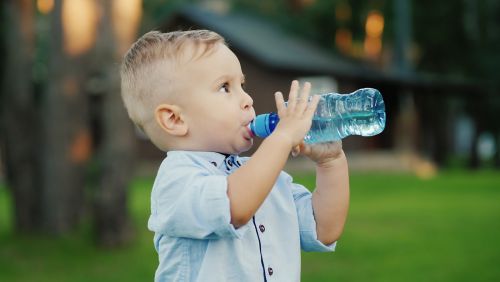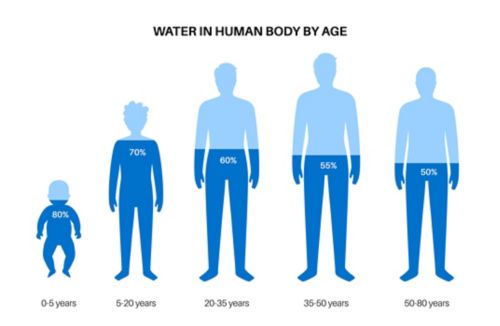Babies and young children have a higher risk of dehydration than adults. This is because they lose water more quickly than adults.
If not treated, dehydration can lead to severe problems, such as seizures, brain swelling, and kidney failure. Children with medical conditions such as cancer and sickle cell disease are at high risk for complications due to dehydration.
You can often treat dehydration at home. But your child may have to go to the hospital in some cases.
Signs and symptoms of dehydration include:
- Dry mouth, lips, nostrils, and skin
- No tears when crying
- Dizziness, fatigue, or weakness
- Confusion
- Irritability
- Sunken eyes or sunken soft spots on infant's head
- Little or no urine, dark colored urine
- Rapid breathing
- Increased heart rate
- Low blood pressure
- Higher than normal body temperature
If your child has dehydration symptoms, contact your care team right away to prevent serious complications.
Causes of dehydration include:
Care providers diagnose dehydration through:
- Physical exam and health history
- Blood tests to measure levels of certain electrolytes, such as sodium and potassium. Electrolytes are substances the body needs to properly function.
- Urine tests
Management of dehydration
The best way to manage dehydration is to prevent it. This lowers your child’s risks for complications. It also reduces the chances of missing or delaying medical procedures and treatments.
Drink water and fluids regularly
Water is best. Ask your care team how much water or fluids your child needs. Your health care provider may also recommend an electrolyte liquid replacement such as Pedialyte® or Enfalyte®.
Your child can also suck on ice chips or popsicles if they have trouble drinking.
If your child does not like to drink water, choose drinks with low sugar and low or no caffeine.
For infants, continue to breastfeed or give infant formula as usual. Follow your health care provider’s directions for feeding.
Manage side effects that cause dehydration
Talk with your care team about ways to prevent or reduce vomiting, diarrhea, and fever. Your child might also have side effects such as mouth or throat sores that make it hard to eat and drink. Your health care provider may prescribe medicines or other treatments.
You can often treat dehydration at home. Follow your care team’s instructions. Ways to treat dehydration may include:
- Slowly increase amounts of fluid and food
- Continue to breastfeed or give formula to infants
- Keep a record of food and fluid amounts
- Make sure your child gets plenty of rest
- Use lotion and lip balm to treat dry skin and lips
- Watch your child for signs of dehydration that get worse. Your child may need treatment at the hospital.
Hospital care may include:
- Medicine for fever
- Rest
- Tests to monitor electrolytes
- IV fluids
Once your child is dehydrated, they may need IV fluids to feel better.
Questions to ask the care team


